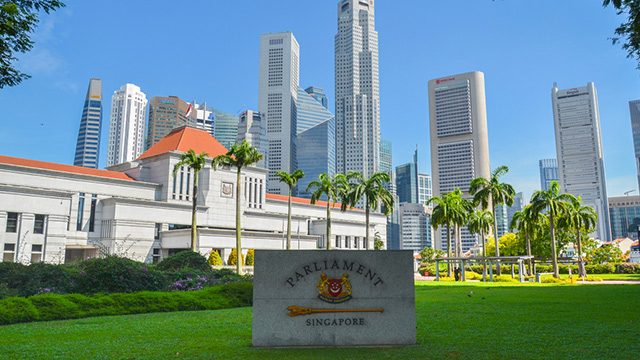SUMMARY
This is AI generated summarization, which may have errors. For context, always refer to the full article.

SINGAPORE – Singapore’s parliament on Wednesday, March 21, passed a controversial law giving authorities the power to block all electronic communications at the scene of a terror attack, despite protests it will erode media freedom.
The law allows police to stop anyone within the vicinity of what they deem to be a “serious incident,” including a terror attack, from taking photos and video or communicating about police operations through text and audio messages.
The government says the affluent financial hub is a prime target for militants, and that during attacks elsewhere live broadcasts unwittingly helped attackers to anticipate moves against them.
However activists argue the law risks further damaging an already poor record what it comes to press freedom in the tightly-controlled city-state.
Josephine Teo, the second minister for home affairs, told MPs the measure would only be used in a specific area and would be lifted when security operations are over.
“Reporting is still allowed, just not live reporting. We will allow selected media into the area for later coverage,” she said.
Lawmakers voted overwhelming in favor of the measure. Parliament is dominated by MPs from the People’s Action Party, which has governed Singapore for over 5 decades.
When the proposal was tabled in parliament earlier this year, Shawn Crispin, Southeast Asia representative of the Committee to Protect Journalists, said it would “black out the news precisely when the public needs to be accurately informed”.
Singapore’s domestic press is closely controlled. Media watchdog Reporters Without Borders ranks the country 151st out of 180 countries in its World Press Freedom Index, with a number-one ranking being the best.
Civil society groups have also raised concerns that the term “serious incident” is vaguely defined and could lead to authorities targeting already rare peaceful protests. – Rappler.com
Add a comment
How does this make you feel?
There are no comments yet. Add your comment to start the conversation.